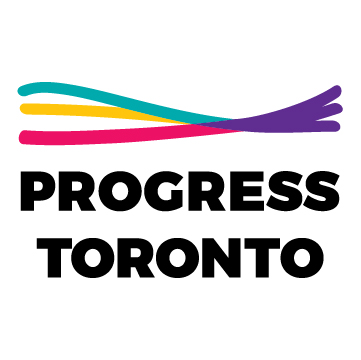Tell Ford: Hands Off Toronto
Doug Ford is meddling with Toronto City Hall again. Ford wants to expand the mayor’s powers in Toronto and Ottawa to create a “strong mayor” system where, as Ford said, “one person [is] in charge, with veto power.”
Handing local city councillors’ powers over to the mayor makes it even harder for people to have their say at City Hall. We need better representation, not less. Use our petition to send a message directly to your local representatives and tell them to stand up for our local democracy.
What is happening?
On Tuesday July 19 the Toronto Star released an article exposing Doug Ford’s plans to overhaul and weaken Toronto and Ottawa’s local democratic systems. Once again in the middle of an election and once again without consultation.
People and City Councillors first learned about this through this Toronto Star article.
Ford has not made any details available. He has told the media that “one person [is] in charge, with veto power.” and that this will be happening this Summer.
Unsurprisingly, Mayor Tory has expressed his personal support for centralizing power in his hands and away from local city councillors.
At the July City Council meeting, Councillor Matlow and Councillor Perks added an urgent motion to the City Council agenda on this issue. City Council voted and asked the Province to consult with the city before making governance changes. They said that “City Council affirms its position that any changes to Toronto’s local elections or its governance structure should be decisions made by Toronto’s City Council.” They also voted to once again asked the Province for additional powers around traffic safety, housing, and raising funds for the city (revenue tools).
Now we are waiting for the Province to more formally announce its plans and put forward legislation on the proposed system. We anticipate this will happen around August 8 when Ford is expected to bring the provincial legislature back into session.
Why does a “strong mayor” system make our city less democratic?
We don’t know the details of Doug Ford’s proposed strong mayor system, but we do know that it includes veto power for the mayor and the ability for the mayor to override local councillors - weakening local democracy.
Right now, mayors and councillors have one vote each at City Hall. This helps decision-making power to be more equally shared and allows for better local representation. If the mayor is given expanded powers, it will mean that the democratic process will be significantly limited and the ability for you to impact change will be more difficult. The local city councillor you elect will have less power in shaping our city.
This is not the first time Doug Ford made sweeping undemocratic changes to City Hall. In 2018, during the municipal election, Ford cut council seats from 47 to 24 and took away local decision making power from residents. Progress Toronto fought this all the way to the Supreme Court of Canada. Now, he’s doing much of the same by essentially making the city into one big ward and taking away power from councillors and the people they represent.
But if the mayor has more power does that mean more affordable housing can get built?
Short answer - no. Mayor Tory has won just about every single vote at City Council and had 8 years to address our housing crisis. If he wanted to address our housing and affordability crisis, he would have made it a priority.
Toronto is facing a massive financial crisis and our city continues to get more and more unaffordable under Tory’s leadership. We are in these crises because of the decisions he and the majority of council are making.
We need to change who is in power - not further entrench those who are already holding power.
How do ‘strong mayor’ systems work in other cities?
‘Strong mayor’ systems are common in the United States. In Chicago its mayor sets their term agenda, does not vote as a part of the legislative body, and can veto any motion that Chicago City Council passes. This limits the power of city councillors in shaping consequential city policy.
“According to 2019 reporting by ProPublica, Chicago’s city council has, historically, just signed off on the mayor’s agenda and in return individual members are allowed to “reign” over ward-level issues like garbage pickup, tree trimming and road signs.” (Toronto Star 2022)
The majority of Chicago’s city council in 2006 voted in favour of lifting the minimum wage for employees at large profitable retailers like Wal-Mart but the then-mayor vetoed the decision in order to keep wages low. Similar to what Ford is proposing, Chicago also has a two-thirds majority veto to override the mayor’s veto. And in this case Chicago City Council was only three votes shy of overruling the mayor’s veto. This impacted thousands of workers across the city who elected their local councillors to represent them and their voices were overridden by the strong mayor system.
We cannot let Ford once again erode our local democracy.

